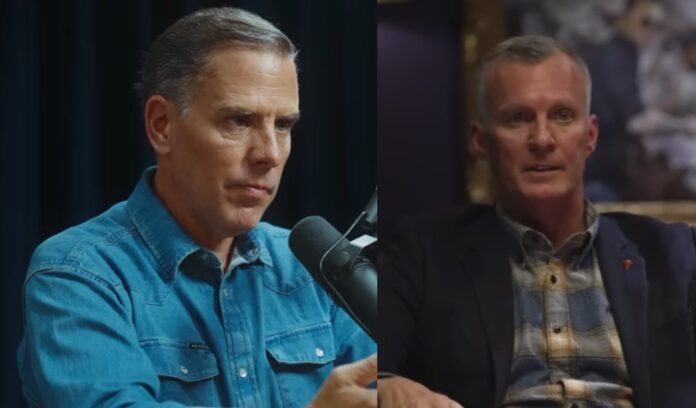In the wake of rising political tensions in the United States, two recent interviews highlight starkly contrasting perspectives on political violence and its toll on the nation. Hunter Biden, son of former President Joe Biden, and Brian Harpole, former head of security for assassinated conservative activist Charlie Kirk, offer insights that underscore deepening divisions amid events like Kirk’s assassination on September 10, 2025, at Utah Valley University.
Hunter Biden, a Yale-educated lawyer and businessman, has faced scrutiny over his foreign dealings, including board positions at Ukraine’s Burisma Holdings and ties to Chinese firms, amid allegations of influence peddling. His personal struggles with addiction, detailed in his 2021 memoir, culminated in a 2024 federal gun conviction (later pardoned) and ongoing tax probes. Republicans have long accused him of exploiting family connections, fueling congressional investigations, and a leaked laptop scandal.
In his November 6, 2025, appearance on the “Wide Awake Podcast,” Hunter Biden portrayed political violence as primarily fueled by right-wing extremists, using Kirk’s death to criticize the MAGA movement’s response. He suggested such incidents suspiciously benefit conservatives, exacerbating national polarization by amplifying partisan rhetoric. “I don’t know why Charlie Kirk was shot, but I do know this: It’s only served one group of people, Charlie Kirk’s death — MAGA. They have taken this, they have wrapped themselves in it, they have righteous indignation!” Hunter Biden stated.
Conversely, Brian Harpole, a former Texas police officer with 14 years in law enforcement, founded Integrity Security after retiring in 2008. As Kirk’s security chief, he has endured conspiracy theories post-assassination, including accusations of negligence, cover-ups, or foreign intelligence involvement— all denied amid harassment and emotional strain.
On the November 17, 2025, episode of the “Shawn Ryan Show,” Harpole addressed violence from a non-partisan, human-centered angle, lamenting its erosion of trust and calling for de-escalation through transparency and prayer. He emphasized personal devastation without assigning blame, urging unity to halt the trend that’s fracturing society. Speaking of the alleged shooter, Tyler Robinson, “I don’t want to know something that feeds a narrative of hate and division,” Harpole said.
These interviews reveal a chasm: Hunter Biden’s accusatory stance risks inflaming divisions, viewing violence as a tool for political gain that deepens America’s ideological rift. Harpole’s plea for resolution, rooted in direct experience, promotes healing and accountability, potentially bridging gaps in a country grappling with misinformation and grief. As midterm elections loom, such voices illustrate how political violence not only claims lives but poisons discourse, demanding bipartisan efforts to restore civility.
